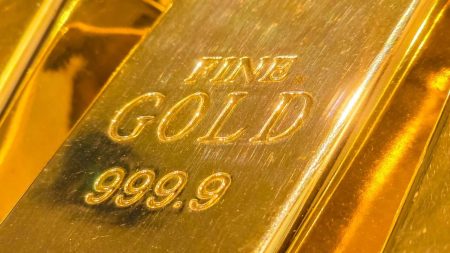If you’re comparing CD rates right now, some of the most competitive options are still looking very appealing. With some offering a 5% APY or higher, you’re definitely going to beat inflation. Plus, a one-year CD doesn’t lock up your money for too long, so it will be available again soon for planned purchases or other investments.
Not all CDs are created equal, however, since their annual percentage yields (APYs) can vary widely. If you deposit $100,000 in a one-year CD today, you may be able to earn a lot of money 12 months from now – if you choose the right CD. Here’s how much interest you could earn right now on $100,000 in CDs earning the national average rate, a competitive rate and the near-zero rate commonly offered by big brick-and-mortar banks.
| Type of 1-year CD | Typical APY | Interest on $100,000 after 1 year | Total value of CD with $100,000 opening deposit after 1 year |
|---|---|---|---|
| CDs that pay competitive rates | 5.00% | $5,000 | $105,000 |
| CDs that pay the national average | 1.80% | $1,800 | $101,800 |
| CDs from big brick-and-mortar banks | 0.03% | $30 | $100,030 |
You’ll often find competitive APYs at online banks, such as Ally Bank and Bask Bank. Additionally, some local credit unions and community banks may offer above-average APYs.
National average 1-year CD rates
The national average APY for one-year CDs is currently 1.80 percent. However, that average may fall fairly soon if the Federal Reserve makes a rate cut in September – which seems highly likely. While 1.80 percent is significantly higher than CDs that earn rock-bottom yields, competitive CDs earn more than double this average.
Investing $100,000 in a one-year CD that earns a 1.80 percent APY would provide you with around $1,800 in interest when the CD matures — for a total balance of $101,800, as shown below:
Type of account: 1-year CDOpening deposit: $100,000APY: 1.80%Total interest after 1 year: around $1,800Total value of CD after 1 year: around $101,800
An online CD calculator is a quick way to determine the amount of interest you’ll have earned on a CD when its term is up.
Competitive 1-year CD rates
Shopping around for a bank with the best rates can make a significant difference in the total value of a CD when it matures. When you’re investing a large amount of money in a CD, a high yield can earn you thousands of dollars more than a low one.
If you were to deposit $100,000 into a one-year CD that pays a competitive APY of 5 percent, you’d have around $5,000 in interest when the term is up, for a total balance of $105,000.
Type of account: 1-year CDOpening deposit: $100,000APY: 5.00%Total interest after 1 year: around $5,000Total value of CD after 1 year: around $105,000
For perspective, earning this competitive rate would give you more than $3,200 in additional interest than earning just the national average rate.
1-year CD rates from big banks
Large banks with lots of branches tend to offer rock-bottom APYs on CDs and other deposit products. For instance, a standard one-year CD at U.S. Bank earns 0.05 percent, while one at Bank of America earns 0.03 percent and one at Chase Bank earns 0.01 percent. That earning power isn’t going to make you rich – in fact, it’s going to make your money lose purchasing power as inflation lingers somewhere below 3 percent.
If you were to deposit $100,000 in a one-year CD that pays a yield of 0.03 percent, it would have earned only around $30 upon maturity — for a total balance of $100,030.
Type of account: 1-year CDOpening deposit: $100,000APY: 0.03%Total interest after 1 year: around $30Total value of CD after 1 year: around $100,030
In all, $100,000 in a competitive one-year CD could earn you nearly $5,000 more in interest than the same amount in a CD that pays a very low yield.
Finding a 1-year CD with the best rate
It pays to shop around for the best one-year CD rates. The most competitive yields can often be found at online banks, which don’t have to bear the overhead expenses of running branches. Credit unions may offer favorable rates as well.
If you’re investing $100,000 or more in a CD, look into jumbo CDs, which may pay higher rates than standard CDs. Some banks offer a tiered APY structure that rewards higher balances with better rates.
If you’re considering CDs with terms of other lengths, check to see if a bank’s longer-term CDs truly pay higher yields than its shorter-term ones. Currently, various one-year CDs are out-earning some four-year CDs and five-year CDs.
Are 1-year CDs safe?
Most CDs earn a fixed APY, which some savers find particularly valuable in a falling rate environment when the yields of variable-rate deposit products are likely to decrease over time. Thanks to a CD’s guaranteed rate, you won’t lose interest or principal as long as you don’t cash it in before it matures and incur an early withdrawal penalty.
As long as you’re with a federally insured financial institution, your money in a CD is safe up to $250,000 per depositor, per insured institution, per ownership category. This guarantees you won’t lose your money in the event of a bank failure.
The Federal Deposit Insurance Corp. (FDIC) is the agency that insures deposits at member banks, while the National Credit Union Administration (NCUA) insures deposits at member credit unions.
Bottom line
While all one-year CDs have the same term, they don’t all offer the same yield potential. When you’re thinking about locking up a huge sum of money like $100,000, you need to invest some extra time to compare a wide range of options.
Cast a much wider net than big brick-and-mortar banks to include lesser-known banks and credit unions that may not have any branches. As long as your full deposit is covered by FDIC insurance or NCUA insurance, you’ll stand to earn a lot more money without worrying about the potential for losing it.
Read the full article here










